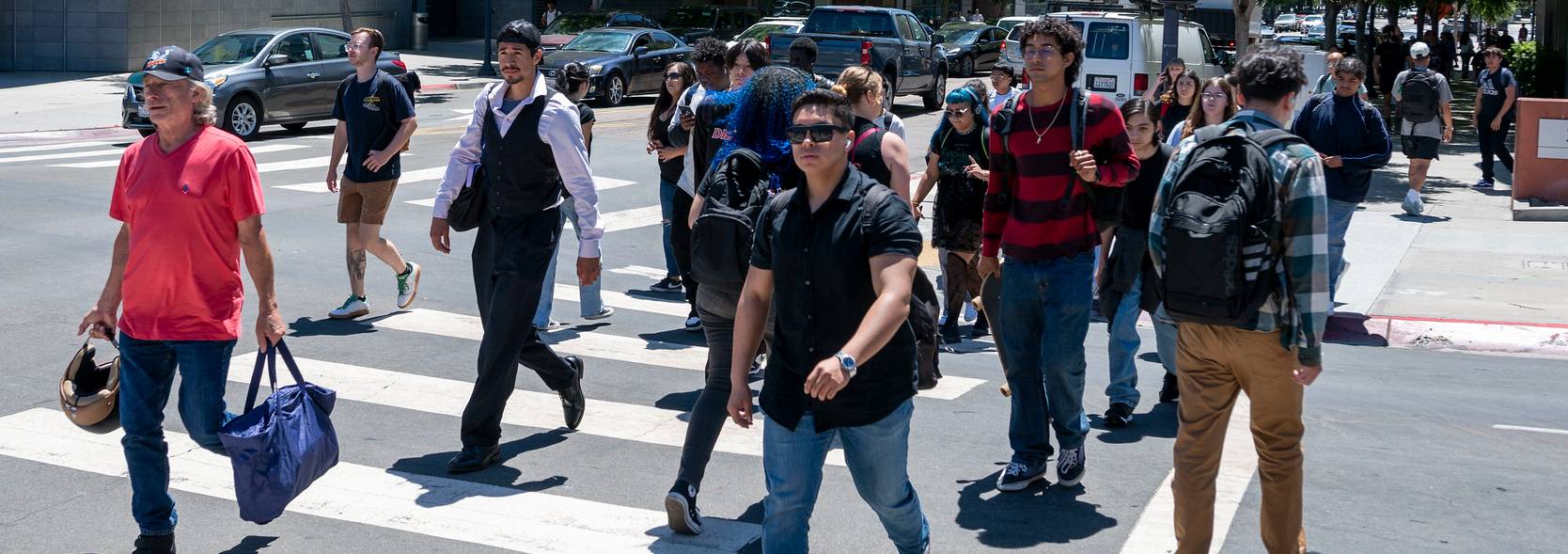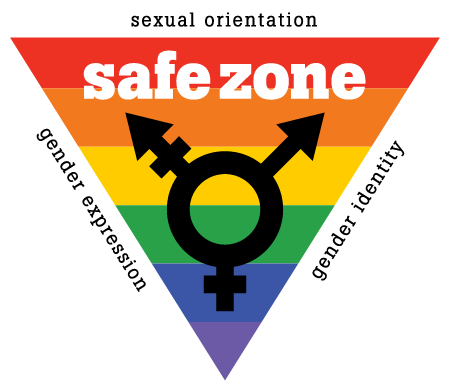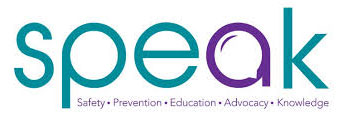Title IX

Notice of Nondiscrimination
The San Diego Community College District is committed to a safe and equitable learning environment for all students and employees. It does not discriminate on the basis of sex or gender in its educational programs and employment. Any incident, including sex discrimination or harassment, but not limited to, sexual assault including rape, dating violence, domestic violence or stalking committed on district property, or at a district sponsored event or activity, should be reported to the Title IX Coordinator immediately.
In addition, Title IX prohibits discrimination on the basis of sex stereotypes, sex characteristics, pregnancy or related conditions, sexual orientation, gender identity, parenting status, pregnancy, childbirth, termination of pregnancy, lactation, related medical conditions, or recovery. Pregnant persons may eligible for disability protection and accommodations under the Americans with Disabilities Act.
Report an incident
Members of the District community can report sex or gender based offenses, including an incident of dating violence, domestic violence, sexual assault, or stalking, to law enforcement, to the District, to both, or to neither. A report does not need to be made by the victim of an incident, but may be made by a third party.
Report A Sex or Gender-Based OffensePlease use the button above to report a sex or gender based offense to the Title IX Office, or refer below for additional information on your reporting options.
If you are in an emergency situation, please contact 9-1-1 for immediate assistance.
Any incident committed on District property or at a District sponsored event or activity may be reported directly to the Title IX Coordinator, who will determine the appropriate response. To report an incident to the Title IX Office, please use the online reporting form: Title IX Incident Report Form or contact the Title IX Coordinator at titleix@sdccd.edu or 619-388-6660.
San Diego City, Mesa and Miramar College and Continuing Education promptly and thoroughly investigate and resolve complaints alleging sex discrimination, sexual harassment, and sexual violence.
An individual may make a report directly to College Police by calling 619-388-6405. College Police will immediately initiate a criminal investigation into on-campus sexual assaults, provided the victim wishes to pursue a criminal investigation.
If you would like assistance reporting an incident to law enforcement, the Title IX Coordinator can assist you.
If a student is seeking more personal confidential support, there are designated confidential resources. Offices designated as "confidential" will not report any information to the Title IX Coordinator. These conversations are kept strictly confidential and, except in rare, extreme circumstances (including imminent risk of harm to self or others) nothing will be shared without your permission.
Please refer to the chart below for a list of confidential resources located on your campus:
| College | Mental Health Office | Phone Number | Website |
| City College | Mental Health Counseling Office A-180 |
619-388-3055 | Mental Health Website |
| Mesa College | Health and Psychological Counseling Services Office I4-209 |
619-388-2774 | Mental Health Website |
| Miramar College | Mental Health Services Office K2-102 |
619-388-7881 | Mental Health Website |
Confidential counseling services for employees are available through the Employee Assistance Program (EAP) at 888-625-4809. Please refer to the EAP Services Overview and VEBA EAP Services Overview brochures for additional information regarding these services.
For more information on these and other support resources, please visit our Get Help page.
Additional support resources are available to students and employees, both on campus and within the community. Please visit our Get Help page for a list of these resources and contact information.
LGBT Safe Campus

The Office for Civil Rights (OCR) in the U.S. Department of Education requires institutions to protect all students, including LGBT (Lesbian, Gay, Bisexual, Transgender) students under Title IX. San Diego City, Mesa and Miramar College and Continuing Education facilitate and foster an inclusive, affirming, inclusive, and celebratory environment for students, faculty, and staff, of all sexual and gender orientation, identities, and expressions. For more information and resources, visit our LGBTQ+ resources page.
SPEAK (Safety Prevention Educaton Advocacy Knowledge)

Victim Services | Confidential Support
Reporting Options | Help a Friend
During this time of hybrid learning, we want to make sure students know what resources are still available to them. The confidential resources listed above are available to provide support. If students need support after 5pm or on weekends, they can contact Center for Community Solutions (CCS) 24-hour crisis hotline at 1-888-385-4657.
If your home life is unstable or dangerous, adhering to ever-changing quarantine mandates and social distancing policies might seem impossible. How can you try to stay safe and healthy in your household? SPEAK has crafted six questions to help guide your safety planning:
- Where in your home do you feel most safe? In stressful moments, try going to the place where you feel most safe. You can also bring something that comforts you, like headphones to listen to music or a soft blanket.
- When things get intense, how do you safely distract yourself or avoid the situation? It’s never your job to intervene if adults are fighting, and it’s never your fault.
- Who can you call or text if you feel unsafe? Even while social distancing, we can still talk with the people we trust. It’s okay to ask for emotional support or help with planning and responding to unsafe situations.
- What steps would you need to take to safely leave your home? You might be able to practice these steps by taking a short walk. While walking, you can think about how to leave your home safely in an emergency, and try to identify where you could go if you had to leave quickly.
- Is it possible to stay with another family member or friend during the next few weeks? Although we want to limit the number of people we interact with, it’s okay to stay inside with people other than your immediate family if needed.
- How safe do you feel at home? Your safety is the most important. If you are in danger, please call the CCS hotline at 1-888-385-4657. If there is an emergency, call your trusted emergency responder.
These questions are just the beginning for making your own safety plan. You can also talk to trusted family members about these questions and plan together. If you need more help, call the Center for Community Solutions' hotline at 1-888-385-4657 on weekends and evenings.